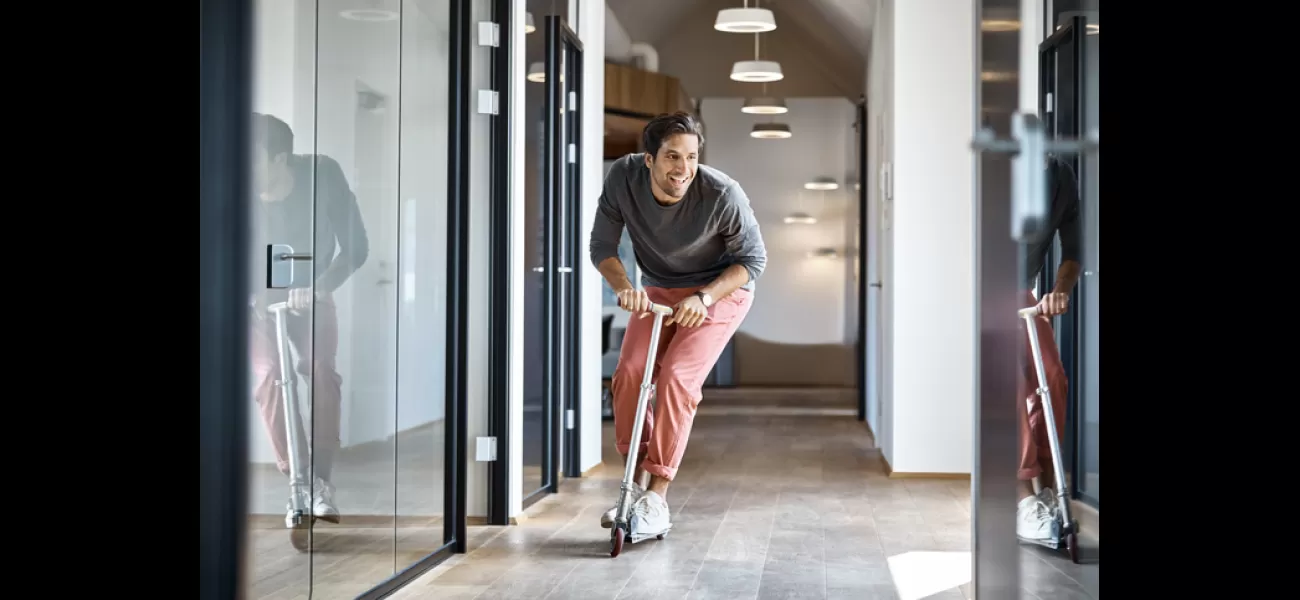Do you believe you were hired for your personality? Is that a negative thing?
Being the designated 'fun one' in the workplace can be overwhelming.
January 15th 2024.

We all know that one person at work who brings an infectious energy to the office, especially on those days when work seems to be dragging us down. Whether they are always cracking jokes, exuding a positive aura, or simply being super-friendly, these social butterflies have a way of bringing some much-needed fun into the mundane work life. In fact, this particular type of charismatic employee has even been given a name by TikTok – the "personality hire." And it seems that many people are owning up to the fact that they might just be one of these in their own workplace.
But this trend has sparked a heated debate – should companies really be hiring based on a person's ability to "bring the vibes" to the office, rather than their skills and experience? After all, what does this say about the overall workplace culture? With the TikTok trend gaining traction, it's natural for those who think they might be their workplace's "personality hire" to have some concerns.
According to David Rice, an HR expert at People Managing People, being a "personality hire" is not necessarily a bad thing as long as one is willing to accept it. However, it's important to consider whether the role has performance incentives and how this may affect one's ability to earn bonuses. Ultimately, it comes down to personal ambition and the desire to be taken seriously. If someone is comfortable with being the "vibes person" in the office and enjoys it, then there's no issue. But what happens when life gets tough and it becomes difficult to maintain that energetic persona? Is that how one wants to be valued? Will they still be seen as valuable during hard times? Will they receive the same support as someone who is seen as a high potential employee when pursuing critical business goals? These are all important questions that need to be answered before accepting the role of a "personality hire."
But should one individual really be the solution to a better workplace culture? Robbie Bryant, a careers expert at Open Study College, explains that it varies from industry to industry and that these "personality hires" often possess skills that can benefit any team. For example, in sales, client services, and events, having a person with a charismatic personality can be a huge asset as they can easily connect with people from all walks of life and persuade them to buy into their ideas. But while it's important to have talent in the workplace, team camaraderie and collaboration can also lead to impressive results for a business. And the "personality hire" can play a key role in boosting confidence and filling in gaps in the team's traits.
However, Harriet Minter, a future work specialist and executive coach, believes that companies should not rely solely on these individuals to maintain their culture. It's best to hire based on skills and use effective management techniques to bring out the best in a person's personality. Hiring someone solely for their ability to bring energy and fun to the office can put a lot of pressure on that person and may even distract them from their actual job responsibilities. Harriet advises anyone who thinks they might be a "personality hire" to consider finding another workplace. As she puts it, just like you don't want to be the smartest person in the room, you also don't want to be the funniest. Businesses ultimately prioritize profits over personality, no matter how much they claim to value it.
Do you have a similar story to share? We'd love to hear it! Get in touch by emailing us at [email address]. And if you're interested, keep reading to learn about the 10 types of bad bosses – because we've all had at least one.
But this trend has sparked a heated debate – should companies really be hiring based on a person's ability to "bring the vibes" to the office, rather than their skills and experience? After all, what does this say about the overall workplace culture? With the TikTok trend gaining traction, it's natural for those who think they might be their workplace's "personality hire" to have some concerns.
According to David Rice, an HR expert at People Managing People, being a "personality hire" is not necessarily a bad thing as long as one is willing to accept it. However, it's important to consider whether the role has performance incentives and how this may affect one's ability to earn bonuses. Ultimately, it comes down to personal ambition and the desire to be taken seriously. If someone is comfortable with being the "vibes person" in the office and enjoys it, then there's no issue. But what happens when life gets tough and it becomes difficult to maintain that energetic persona? Is that how one wants to be valued? Will they still be seen as valuable during hard times? Will they receive the same support as someone who is seen as a high potential employee when pursuing critical business goals? These are all important questions that need to be answered before accepting the role of a "personality hire."
But should one individual really be the solution to a better workplace culture? Robbie Bryant, a careers expert at Open Study College, explains that it varies from industry to industry and that these "personality hires" often possess skills that can benefit any team. For example, in sales, client services, and events, having a person with a charismatic personality can be a huge asset as they can easily connect with people from all walks of life and persuade them to buy into their ideas. But while it's important to have talent in the workplace, team camaraderie and collaboration can also lead to impressive results for a business. And the "personality hire" can play a key role in boosting confidence and filling in gaps in the team's traits.
However, Harriet Minter, a future work specialist and executive coach, believes that companies should not rely solely on these individuals to maintain their culture. It's best to hire based on skills and use effective management techniques to bring out the best in a person's personality. Hiring someone solely for their ability to bring energy and fun to the office can put a lot of pressure on that person and may even distract them from their actual job responsibilities. Harriet advises anyone who thinks they might be a "personality hire" to consider finding another workplace. As she puts it, just like you don't want to be the smartest person in the room, you also don't want to be the funniest. Businesses ultimately prioritize profits over personality, no matter how much they claim to value it.
Do you have a similar story to share? We'd love to hear it! Get in touch by emailing us at [email address]. And if you're interested, keep reading to learn about the 10 types of bad bosses – because we've all had at least one.
[This article has been trending online recently and has been generated with AI. Your feed is customized.]
[Generative AI is experimental.]
0
0
Submit Comment





